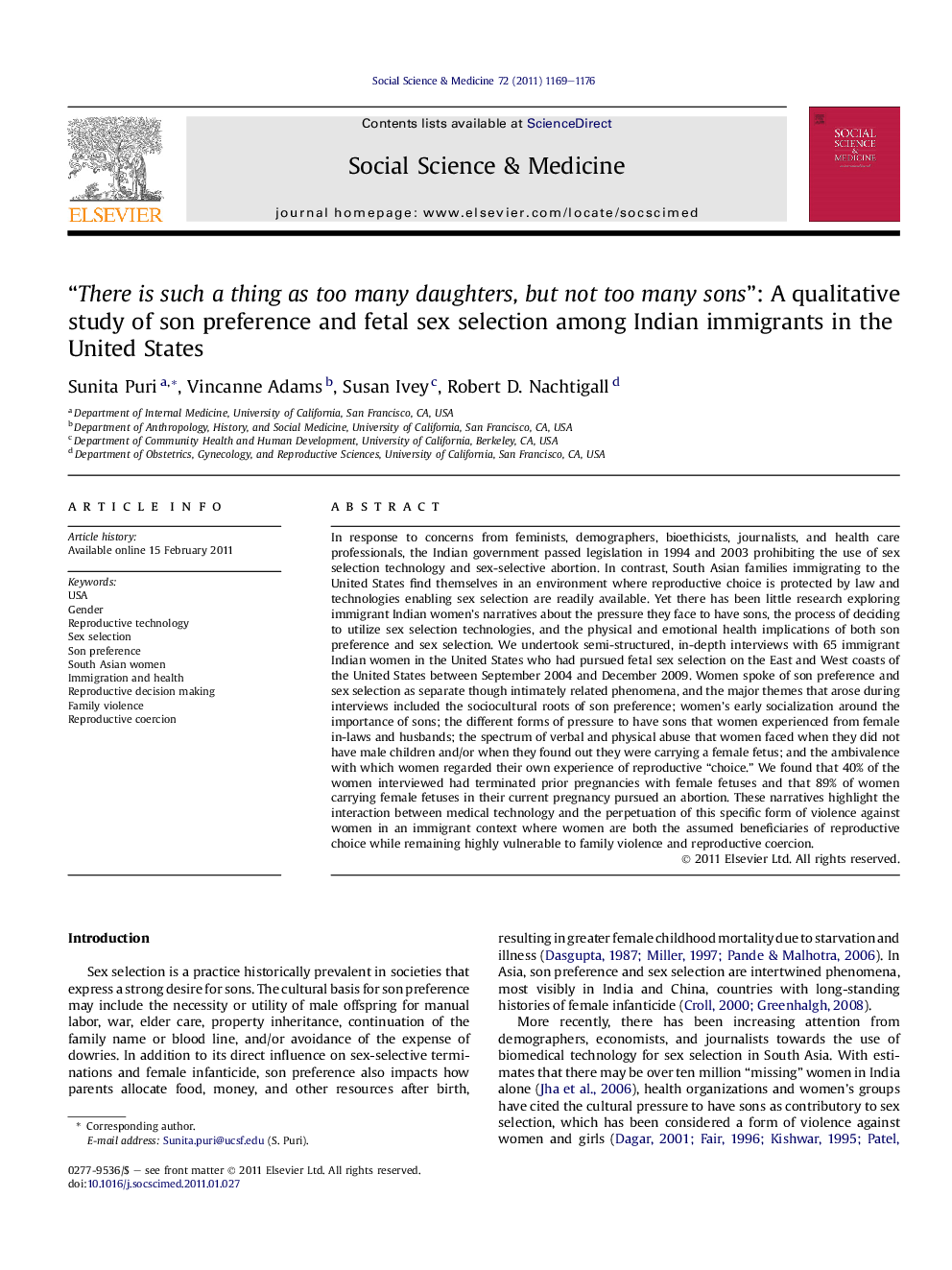| کد مقاله | کد نشریه | سال انتشار | مقاله انگلیسی | نسخه تمام متن |
|---|---|---|---|---|
| 952827 | 927541 | 2011 | 8 صفحه PDF | دانلود رایگان |

In response to concerns from feminists, demographers, bioethicists, journalists, and health care professionals, the Indian government passed legislation in 1994 and 2003 prohibiting the use of sex selection technology and sex-selective abortion. In contrast, South Asian families immigrating to the United States find themselves in an environment where reproductive choice is protected by law and technologies enabling sex selection are readily available. Yet there has been little research exploring immigrant Indian women’s narratives about the pressure they face to have sons, the process of deciding to utilize sex selection technologies, and the physical and emotional health implications of both son preference and sex selection. We undertook semi-structured, in-depth interviews with 65 immigrant Indian women in the United States who had pursued fetal sex selection on the East and West coasts of the United States between September 2004 and December 2009. Women spoke of son preference and sex selection as separate though intimately related phenomena, and the major themes that arose during interviews included the sociocultural roots of son preference; women’s early socialization around the importance of sons; the different forms of pressure to have sons that women experienced from female in-laws and husbands; the spectrum of verbal and physical abuse that women faced when they did not have male children and/or when they found out they were carrying a female fetus; and the ambivalence with which women regarded their own experience of reproductive “choice.” We found that 40% of the women interviewed had terminated prior pregnancies with female fetuses and that 89% of women carrying female fetuses in their current pregnancy pursued an abortion. These narratives highlight the interaction between medical technology and the perpetuation of this specific form of violence against women in an immigrant context where women are both the assumed beneficiaries of reproductive choice while remaining highly vulnerable to family violence and reproductive coercion.
► Although sex selection has been prohibited in India, it is available to South Asian families who have emigrated to the U.S.
► The cultural roots of son preference include the socioeconomic value of sons and the fear of raising daughters in the U.S.
► Eighty-nine percent of sex-selecting women terminated their pregnancy after discovering they were carrying a female fetus.
► Son preference was at times accompanied by verbal and physical abuse toward women who carried a female fetus to term.
► The proliferation of reproductive technology frequently has unanticipated cultural and gender-based ethical implications.
Journal: Social Science & Medicine - Volume 72, Issue 7, April 2011, Pages 1169–1176